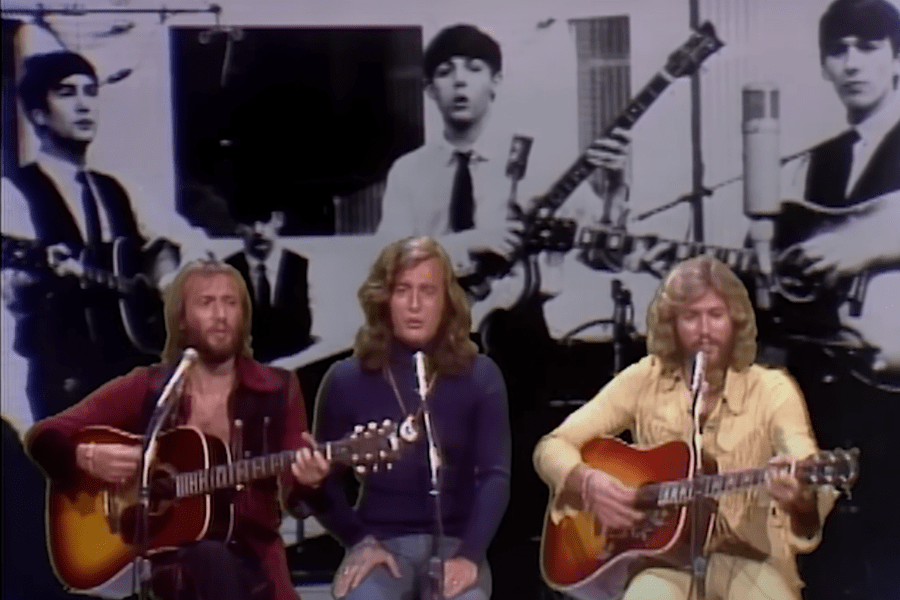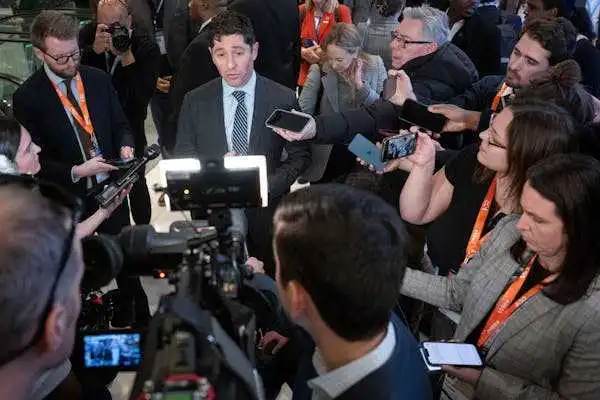The Bee Gees are rightly remembered, first and foremost, for dominating the disco era. Their work on the Saturday Night Fever soundtrack is unimpeachable, from the sidewalk-strutting “Stayin’ Alive” to the tender balladry of “How Deep Is Your Love.” But for fans unfamiliar with their earlier work, it’s often shocking to learn about the brother-trio’s other musical phases, including psychedelic-pop and folky soft-rock.
One excellent showcase of that range dates back to August 10, 1973, when they played a stripped-down acoustic medley of five Beatles classics on late-night show The Midnight Special. It was an interesting (and perhaps savvy) promotional choice: The band’s 11th and most recent LP, that year’s Life in a Tin Can, earned middling reviews and below-average sales, only reaching No. 69 on the Billboard 200. Perhaps looking back to The Fab Four—who’d broken up in 1970—was a safer bet than their single “Saw a New Morning,” which petered out at No. 94 on the Hot 100.
Reasoning aside, the performance is stunning, highlighting the Bee Gees’ tight vocal harmonies and clever arrangements that flow gracefully between major and minor keys. Only utilizing their voices and a pair of gently strummed acoustic guitars, the group (Barry, Robin, and Maurice Gibb) work through some of their favorites from the early Beatles catalog: “If I Fell,” “I Need You,” “I’ll Be Back,” “This Boy,” and “She Loves You,” earning the biggest applause for the latter staple.
This was a unique time in the band’s career, predating Saturday Night Fever’s commercial explosion by four years. But The Beatles’ influence played a major factor in what happened after that blockbuster album—and not in an ideal way: In 1978, The Bee Gees starred in a musical based on that band’s 1967 masterpiece, Sgt. Pepper’s Lonely Hearts Club Band, and the film was a major box-office bomb (However, the soundtrack—which featured the Bee Gees covering a handful of Beatles songs—fared much better, peaking at No. 5 on the Billboard 200).
The two bands were friendly over the years—for proof, just consult this Reddit thread rounding up photos of their various members together. Robin Gibb even talked about nerding out about Beatles songs backstage with Paul McCartney one year at the Grammys. “He invited me to the dressing room ’cause we’d met, and once again you just find yourself wanting to talk about songs,” he told interviewer Tim Roxborogh. “I just kept saying, ‘If I Fell,’ ‘If I Fell,’ Paul!’ [Laughs.]…He’s very kind and very gentle and respectful.”
In that same interview, Gibb mentioned that McCartney even recorded a Bee Gees cover—though, as of this writing, it appears to remain unreleased. “He recorded [1978’s] ’Too Much Heaven,’” he said. “It never went out, but he wants to send me the master so I can look at it and see if we can really enhance it, but Robin got him to do ‘Too Much Heaven’ in England…He’s always been one of my heroes, and just knowing the man is inspiring.” McCartney seems to feel the same way: When Gibb received a Kennedy Center Honor in 2023, the Beatle appeared in a video promo, enthusing, “Barry Gibb is one of the greats!”
This article originally appeared in May.

















